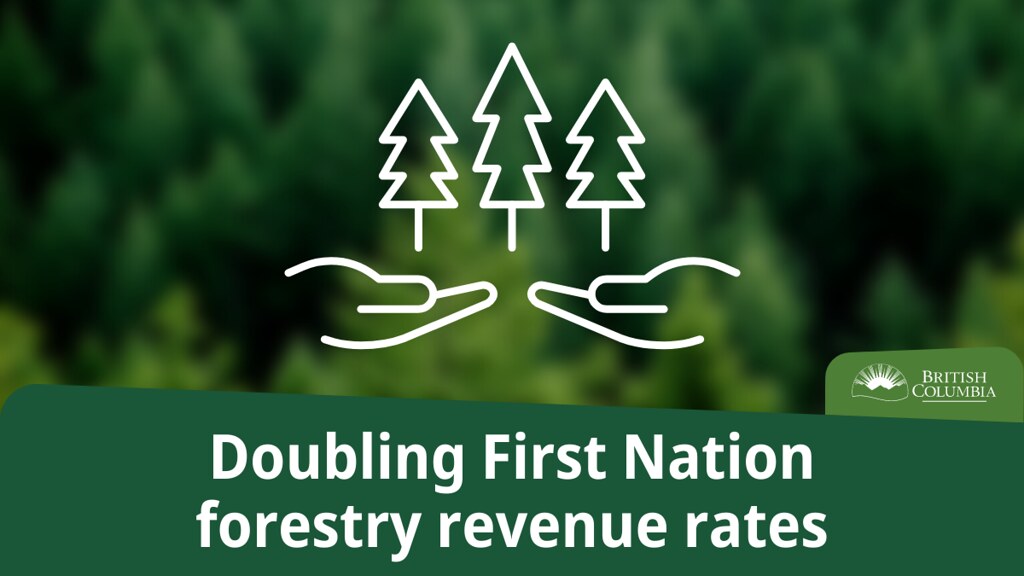British Columbia is more than doubling the forestry revenues that will be shared with First Nations as part of the work to co-develop a new forestry revenue-sharing model. This will lead to an immediate increase of $63 million for First Nations this year.
“We are co-developing a new fiscal relationship to bring immediate benefits to First Nations and enhance government-to-government relationships in accordance with the United Nations Declaration on the Rights of Indigenous Peoples,” said Murray Rankin, Minister of Indigenous Relations and Reconciliation. “We are moving away from the short-term transactional approach of the past toward a new fiscal framework that recognizes, respects and supports Indigenous Peoples’ right to self-determination.”
Forestry revenues are a significant component of resource revenues in the province, with most First Nations receiving benefits. However, the current forestry revenue-sharing model is “inadequate”. The Province has heard this feedback through various engagement initiatives with First Nations, including engagement on the BC First Nations Forest Strategy and the Forestry Modernization Intentions Paper.
Engagement on co-developing a new forestry revenue-sharing model is expected to take at least two years. The interim enhancements will be in place until a new forestry revenue-sharing model is finalized.
B.C. was the first jurisdiction in Canada to recognize in law the international standards of the United Nations Declaration on the Rights of Indigenous Peoples (UN Declaration). The steps taken help achieve the commitments expressed in Actions 1.4 and 1.5 of the Declaration Act Action Plan 2022-27 to co-develop with Indigenous Peoples a new distinctions-based fiscal relationship that supports the operations of Indigenous governments and new distinctions-based policy frameworks for resource revenue sharing.
The first step in developing a new fiscal relationship began in 2019 with gaming revenue sharing, which provides all First Nations in B.C. with 7% per year of net provincial gaming revenues through 2045, which is approximately $123 million from 2019 to 2021.
